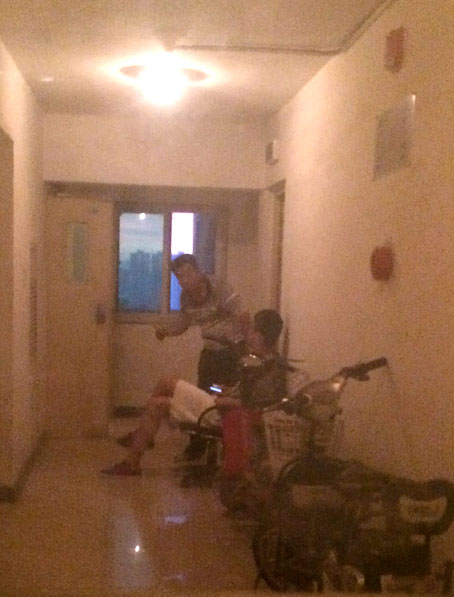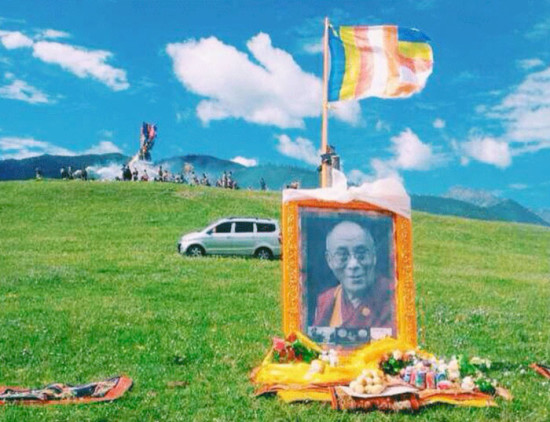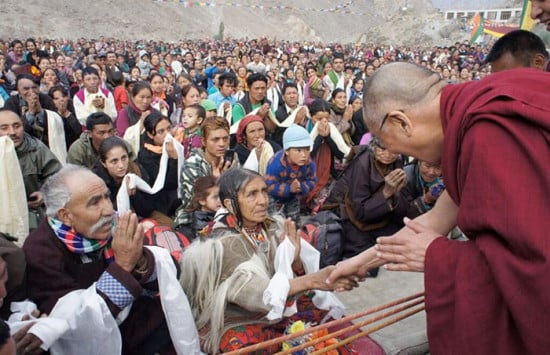Secretary Kerry raises Tibet in Beijing
The State Department confirmed in a briefing that Secretary Kerry raised his in his discussions with Chinese State Councilor Yang as part of the high-level U.S. – China Strategic and Economic Dialogue.
“The Secretary and Yang discussed the situation in Xinjiang and the treatment of the Uighur minorities, as well as the situation in Tibet, and China’s policy towards both Tibet and to the Dalai Lama.
“The Secretary made clear our positions. We certainly recognize Tibet as a part of the PRC, and we reinforced – the Secretary reinforced our view that it is important for China to respect and protect the religious and cultural and the linguistic rights and characteristics of the ethnic minorities, particularly in Tibet and in Xinjiang.”
Tibet was not mentioned in the public joint media appearances by Kerry and his Chinese counterparts. However, Tibet was a part of the context of the high-level talks, as manifested in the incident involving noted writer Woeser, which displays both the U.S. interest and Chinese sensitivity over the Tibet issue (see next item).
Tsering Woeser and Wang Lixiong put under house arrest; American Tibetologist denied entry to China

Plainclothes agents outside their apartment prevent Woeser and Wang from leaving (Image: Woeser)
Tsering Woeser, who was honored with an “International Women of Courage Award” by the State Department in 2013 but prevented from traveling to the United States to receive it by Chinese authorities, has said that she would have liked to express her thanks to Secretary Kerry for the award.
Meanwhile, prominent Tibetologist Elliot Sperling of the University of Indiana was denied entry to China on Monday, July 7, after landing in Beijing with a valid Chinese visa. Sperling says he was blacklisted due to his vocal support for Ilham Tohti, a recently-arrested Uyghur scholar and close friend of Tsering Woeser and Wang Lixiong.
Tibetans celebrate Dalai Lama’s birthday

Offerings placed before a portrait of the Dalai Lama in Tawu (Image: RFA)
Despite the possibility for harsh reprisals, Tibetans inside Tibet marked the 79th birthday of the Dalai Lama in a number of ways on July 6th. An RFA report quoted a Tibetan living in Amdo, who said that observances included “hoisting prayer flags, going on picnics, holding horse races, and burning juniper branches as offerings at sacred mountain sites.” In some areas Chinese authorities took extreme measures to prevent Tibetans from celebrating, including banning public gatherings of more than three Tibetan families. Images of offerings being placed before a portrait of the Dalai Lama in Tawu, Kham, are noteworthy in respect to the shooting which occurred there last year during the Dalai Lama’s birthday. On that occasion at least 10 Tibetans were injured when Chinese police opened fire on a group which had gathered to celebrate on a mountainside.
Arrests and beatings continue in anti-mining protests
Armed police beat a group of Tibetan women as they protested Chinese mining operations in Dechen prefecture, southeast Tibet, on June 30th. According to an RFA source, “Tibetans in Mata [village] have urged the authorities several times to stop the mining out of concern for the community’s safety and the sacredness of the mountain, but their concerns were never addressed,” leading to the current protests. A group of men who came to support the women were taken away by the police.
In Chabcha, part of the Amdo region of northern Tibet, four Tibetans remain in police custody and stand accused of acting as the ‘ringleaders’ in earlier protests against Chinese mines. A local source told RFA that “Tibetans living in the Chabcha area are really worried, as they have heard that the detained protesters may now face trial and could be sentenced to a number of years in prison.”
Dalai Lama delivers Kalachakra teachings in Ladakh, India

The teachings, which began during the Dalai Lama’s 79th birthday, have drawn an estimated 150,000 people according to an article by Al Jazeera. Although China has deployed extra troops along the border to prevent Tibetans inside Tibet from entering Ladakh to attend the teachings, a number of Tibetans told Al Jazeera that they had managed to sneak into India nonetheless.
ICT Board of Directors chair Richard Gere was on hand during the teachings, and gave a speech wishing the Dalai Lama a happy birthday and discussing his experiences with His Holiness. Please see a slideshow of images from the Kalachakra here.
UN Special Rapporteurs express concern over China’s detention of Tibetan singers and musicians
Seven UN Special Rapporteurs have written to Beijing to express their concern over the number of Tibetan singers and musicians who have been arrested or forcibly disappeared by Chinese authorities since 2008. The Rapporteurs, including the Special Rapporteurs for Arbitrary Detention, Disappearances, and Cultural Rights, named the following Tibetans among those whose cases they’re following: Gongpo Tsezin, Trinley Tsekar, Kelsang Yarphel, Lolo, Pema Trinley, Chakdor, Khenrap, Nyagdompo, Shawo Tashi, and Achok Phulshung.

